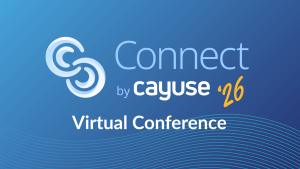Blog
Breaking Down Silos to Drive Results: Keeping Separate Systems on the Same Page
- Government
- Healthcare
- Higher Education
- Life Sciences
- Nonprofit
Part five of our five-part series covering strategies to accelerate growth and break down organizational silos in research administration. Read part four here.
Research administration offices consistently find themselves navigating a frustrating maze of data siloes. Most teams we speak to are looking for cohesive systems and strategies to enhance overall process efficiency and mitigate the risks that come with decentralized research ecosystems.
In the final blog of our five-part series, we’re looking at insights, best practices, and tools to help break down siloed systems in research administration with two primary goals in mind:
- Understand the challenges that come with disconnected systems
- Learn how Cayuse can help bring siloed processes together
Highlighting the risks of siloed systems
According to the Cayuse State of Research Administration Benchmark Report, staffing constraints and inefficient processes are the top two obstacles research administrators face. Against a backdrop of high turnover, staff often inherit disjointed and decentralized systems that do not support the necessity to do more with less.
These siloed systems create significant risks, including inaccurate data and failed congruency checks. In the highly regulated world of sponsored projects, these risks carry potential fiscal, civil, and even criminal repercussions.
Risk #1: Congruency checks
Congruency checks are the process of ensuring that internal proposals and protocols accurately reflect what has been submitted to sponsors. In the intricate world of research administration, maintaining this congruence is essential to avoid severe penalties and ensure compliance with authoritative bodies like the NIH and PHS.
Risk #2: Inaccurate data
Research administrators also face the perils of inaccurate data—and, consequently, inaccurate reporting—that can arise from disjointed systems. A coherent flow of clean, accurate data is essential for making informed decisions based on a clear understanding of what your records actually mean.
Risk #3: Low user adoption
When researchers and RA staff don’t understand, use, or follow your processes, you have low user adoption. This challenge can spread insidiously and often comes with low workplace satisfaction, increased error rates, and high turnover.
How Cayuse increases efficiency and breaks down silos
Cayuse is a comprehensive, end-to-end solution aimed at eradicating system issues like disjointed research systems. We provide an integrated, centralized platform that ensures seamless navigation, verifiable congruency, and efficient data management, with core functionality including:
- Integrations within Cayuse for seamless navigation between functions
- Cayuse and InfoReady integration to manage internal or limited submissions
- Cayuse and Fund Finding, including integrations with Grant Forward and Pivot
- Cayuse with Third-Party Systems, using APIs to facilitate direct record-linking
- Cayuse with BI Reporting Tools such as Power BI
There are many noteworthy features that help break down silos and bring systems together, here are a few of our favorites:
- System-to-system submission: facilitating applications for federal funding by linking internal and external records
- Ethics integration: enabling efficient congruency checks with human ethics (IRB) and animal ethics (IACUC) integration
- Award spend management: providing the real-time financial status of projects to ensure full cost recovery and transparency
- COI application integration: tracking conflict of interest status and ensuring uninterrupted compliance
- Fund finding tool integration: initiating proposals directly from identified funding opportunities
- Reporting tools: robust data extraction for detailed reporting and custom dashboard creation
- InfoReady integration: enabling internal proposal management for streamlined operations
Ready to learn how Cayuse can help you break down data siloes and drive research administration efficiency? Get a personalized demo.

